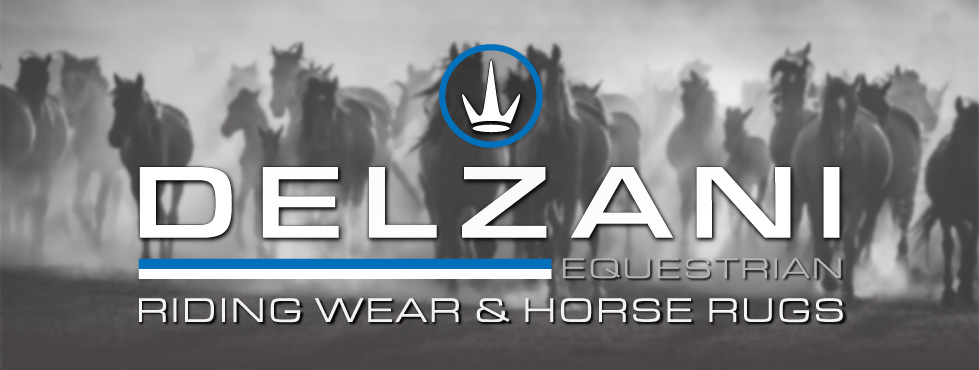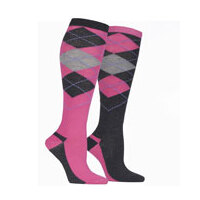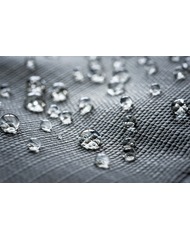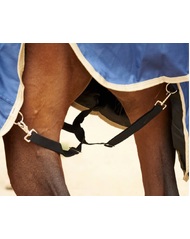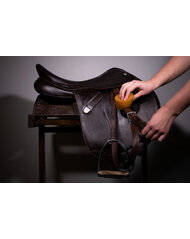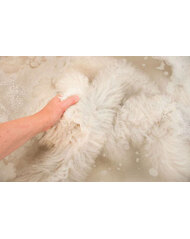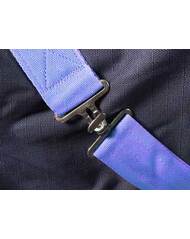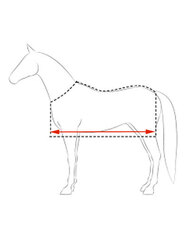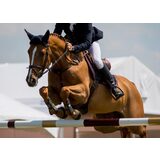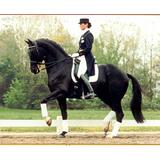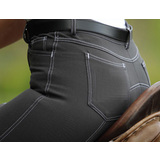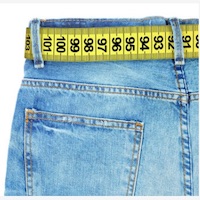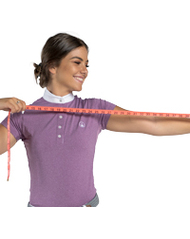How to tie a Dressage Stock tie
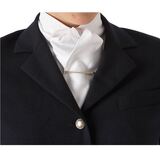
For many Dressage riders, tieing a Stock can be tricky and stressful - especially when you are getting ready to compete and your mind is on a million other things. However, it really is simple, and a few practice runs will have you looking great and you will be in high demand from your fellow riders with requests to help them with their own Stocks!
1. Depending on the style of Stock, start by placing your Stock against the front of your neck and fastening it to the top button on your shirt. Then wrap both ends of the stock around your neck from front to back, push the opposite end through the stock slot, and pull firmly to bring both ends onto the chest. Some stocks have already done some of the work for you and have a simple rear fastener.
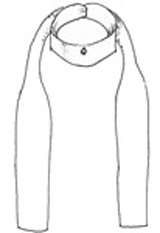
2. Next, make a single 'right over left' knot, pulling it nice and close to your neck. Next is the tricky bit, take one end of the Stock and lie it over your right shoulder and take the other end, folded upwards, and overlay it on the left shoulder. If needed, you can secure the knot at the base with a safety pin to avoid movement.
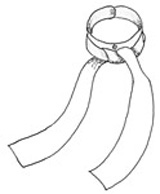
3. Leaving one end of the stock on your left shoulder, bring the other end over the top of it and thread back through the fold.
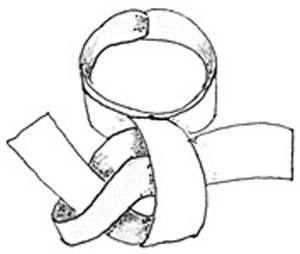
4. Pull both ends of the stock upwards into a knot at the neck. The knot should be firm, but not too tight as it may become uncomfortable after a little while.
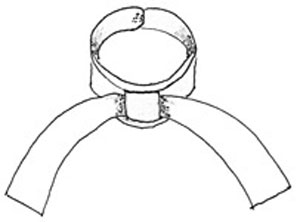
5. Next, fold the ends of your stock forward and cross, one side over the other. Position the ends until you achieve the desired effect with the knot showing in the center.
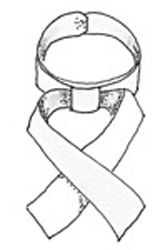
6. Finally, secure with a pin through your stock, 5cm below the knot. The stock pin should be placed horizontally.
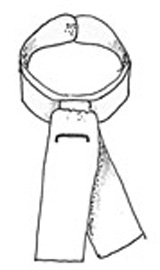
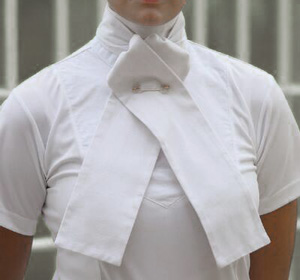
Check out our range of competition and show shirts - that won't break your bank account
Leave a comment
Related Equestrian Guides
Choosing the perfect horse riding sock
Learn what makes the best horse riding socks for Australian riders. From fabrics to fit, cushioning and durability, this guide explains how Delzani riding socks outperform everyday socks in comfort and performance.
Understanding Denier: The Key Differences Between 600D and 1200D Turnout Rugs
Confused about 600D vs 1200D horse rugs? Learn what denier really means, how it affects toughness (not warmth or waterproofing), and when to choose Delzani’s Waratah 600D rainsheets for lighter use or Wyndham 1200D rainsheets for maximum durability.
Understanding your horse rugs waterproofing
Learn how horse rug waterproofing and breathability really work, why membranes matter more than fabric, and how to test, care for, and choose rainsheets. Explore Delzani’s 600D Waratah and 1200D Wyndham rugs, built for tough Australian conditions.
How to maintain your saddlery leather
Cleaning tack is admittedly not something we like to spend our spare time engaged in, but it is necessary nonetheless and a little knowledge can go along way to get the best life from your leather.
Wash Guide - Sheepskin
Follow our care guide to get the the best advice on washing your sheepskin numnahs and saddle pads.
Wash Guide - Horse Rugs
To get the best life from your Delzani horse rug, taking a few simple washing precautions will go along way.
How to fit & adjust horse rug belly surcingles
Belly surcingles keep horse rugs secure, but only if fitted correctly. We answer common questions on what surcingles do, why they matter, and how proper adjustment ensures comfort, safety, and longer rug life for horses in Australian conditions.
Delzani Horse Rug Sizing Guide
We have put together this comprehensive guide to help you purchase the ideal size Delzani horse rug.
Equestrian Breeches & Tights - Washing Guide
Care for your breeches the way you care for your horse — with precision, patience, and pride. The right wash routine keeps your Delzani riding tights and breeches performing beautifully, ride after ride.
Dress for Success - Showjumping Dress Code
Understanding exactly what is and isn’t permitted in regard to dress standards for Showjumping competitors can be very helpful when putting your competition wardrobe together.
Dress for Success - Dressage Dress Code
Want to look your best at your next Dressage Event but not sure what the rules are? Understanding exactly what is and isn’t permitted in regard to dress standards for dressage riders can be very helpful when putting your competition wardrobe together.
The Ultimate Guide to Equestrian Breeches & Jodhpurs: Classic Fit vs Stretch Fit Explained
At Delzani - we pride ourselves on the careful in house selection and development of our premium breech and tights fabric blends. Each fabric has been researched and custom made to meet our requirements and the needs of Australian equestrian riders.
Riding Shirts - Washing & Care Guide
Delzani equestrian shirts are made to be worn, not worshiped. Throw horses into the mix and this means they get dirty. However, with proper care, your new equestrian show shirt can last for several years and continue to look great.
A guide to seat grips on our Breeches & Tights
It is interesting to learn how silicone is applied to breeches. Silicone is applied much like screen printing and there can be anywhere from 3 to 10 layers - building up the silicone. The number of layers affects the long-term quality.

